If you’re passionate about improving the health and wellness of individuals and communities, then you might consider earning a community health education degree.
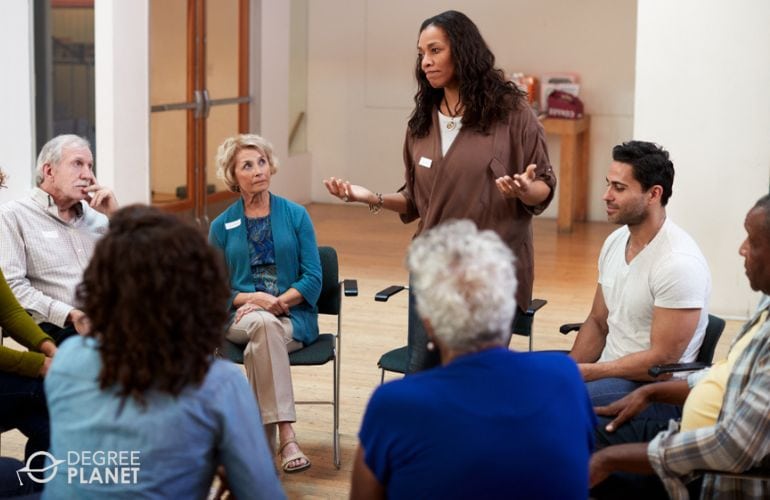
You can work toward improving the health of communities by learning how to analyze health data and provide education to inform others and improve quality of life. A degree in community health education helps prepare you to design, implement, and evaluate health programs.
Editorial Listing ShortCode:
Read on to learn more about potential coursework and career outcomes associated with a bachelors in community health education.
Online Community Health Education Degrees

At its core, an online degree in health education helps prepare you to make a difference in health promotion and disease prevention within communities. Plus, an online degree program often allows you to have a more flexible schedule.
In this field, it’s beneficial to be a planner who is also solution-oriented. Community health educators often identify the health needs of communities, analyze data and assessments, and create plans to improve the health of communities and the efficiency of their health systems.
A community health educator degree is designed to prepare you to:
- Analyze and determine individual and community health needs
- Plan, develop, evaluate, and implement community health programs
- Implement health education strategies and interventions
- Conduct research and evaluations in the health education field
- Promote health communication campaigns and advocate for community health programs
- Use epidemiological principles and statistical constructs
Since community health educators work with people, you’ll also learn about behavioral and social health, communicable and chronic diseases, health communication, and epidemiology.
Editorial Listing ShortCode:
Other subjects involve effective program creation, including program administration, evaluation in public health, and programming planning in public health. Professionals who earn community health education degrees online may also find work in a variety of community health environments.
Common work settings for health educators include:
- Healthcare facilities
- Nonprofits
- Public health departments
- Schools and colleges
- Private companies
A community health education major is designed to provide you with a strong foundation to not only enter the field of health education but also further your studies. Graduates who choose to earn their masters degree often concentrate their studies in public health.
Community Health Education Careers & Salaries
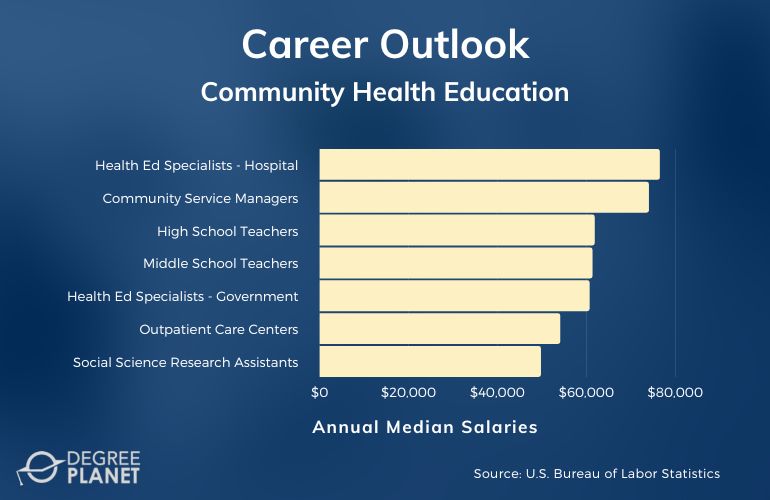
With a community health education degree as a foundation, you could be prepared for a variety of opportunities in the health and community arena.
Health educators can work in a variety of fields and settings. For example, those who work in hospitals are often known as patient navigators or educators. Those who educate middle or high schoolers work as health teachers, which often requires teaching licensure.
According to the Bureau of Labor Statistics, here are the median salaries of career paths that can be related to the field of health education.
| Careers | Annual Median Salary |
| Health Education Specialists — Hospitals | $76,450 |
| Social and Community Service Managers | $74,000 |
| High School Teachers | $61,820 |
| Middle School Teachers | $61,320 |
| Health Education Specialists — Government | $60,670 |
| Health Education Specialists — Outpatient Care Centers | $54,060 |
| Social Science Research Assistants | $49,720 |
| Health Education Specialists — Individual and Family Services | $47,040 |
| Community Health Workers | $46,590 |
| Social and Human Service Assistants | $37,610 |
Community health educators are often required to be very clear communicators, skilled evaluators of systems and programs, and well-versed in laws and regulations related to the health industry. These skills can provide a solid foundation to enter a variety of roles.
Editorial Listing ShortCode:
Employment opportunities for health educators and community health workers are expected to grow 17% over the next ten years, which is much faster than average (Bureau of Labor Statistics).
Community Health Education Bachelor’s Curriculum & Courses

Below are several courses you may come across while earning a Bachelor of Science (BS) in Community Health Education:
- Introduction to Community Health Education: This course will explore the field of health education, including the responsibilities and skills of the community health education professional.
- Communicable Diseases: This course explores the origin and causes of human communicable diseases, along with disease patterns, prevention, treatment, and control.
- Methods and Materials in Health Education: You’ll learn about curriculum planning, teaching strategies, learning resources, and materials for community health education settings.
- Program Administration: This course provides a solid foundation of principles and theories in program administration in public health at the local, state, national, and international levels.
- Health Communication and Social Marketing: You’ll learn the power of effective health marketing campaigns as well as how to design and implement health campaigns.
- Social and Behavioral Health: You’ll study how social and behavioral science affect community health factors, and you’ll overview theories and principles of sociology to improve wellness behaviors.
- Wellness Across the Lifespan: This course explores the stages of human development and how different stages and life events influence wellness over a lifetime.
- Research and Assessment in Public Health: You’ll learn how to develop knowledge and skills of data collection, research designs, and statistical analysis to determine need and assets in health education programs.
- Evaluation Methods in Public Health: This course covers the steps in conducting evaluations and communicating their results, and it also studies contextual issues surrounding evaluations and evaluation designs.
- Programming Planning in Public Health: This course provides effective skills to plan, implement, and manage health programs, and it also explores concepts and theories related to successful health programs and public policy.
Depending on your school of choice, your community health education degree curriculum may require more or less core health science courses.
Admissions Requirements

The admission requirements for bachelor’s in community health education programs tend to follow the standard application requirements for a bachelors degree. You may be asked to provide:
- High school or GED transcripts
- Cumulative GPA of 2.5 or higher, depending on the school
- SAT or ACT scores (only some schools require them)
You may also be required to pay an application fee. Since schools can have varying admissions requirements, it’s helpful to check the specific criteria for each of your prospective schools.
Accreditation
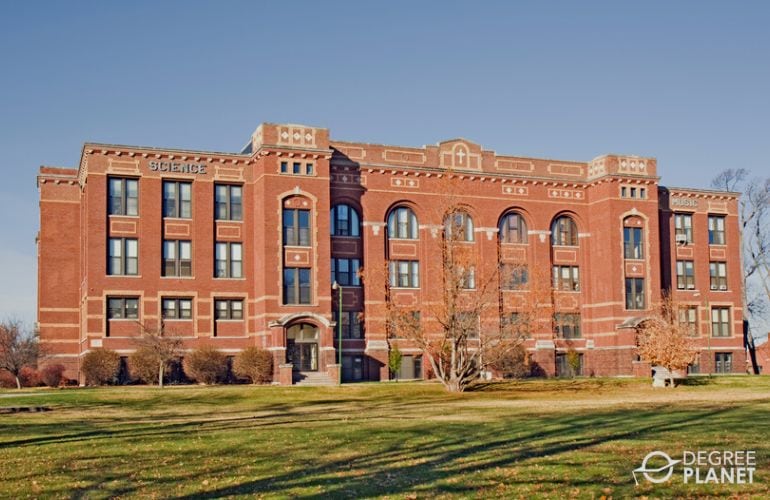
It’s strategic to determine whether your potential school is regionally accredited. This can impact not only your eligibility to receive financial aid but also your employability in the future.
Regional accreditation is considered the most prestigious and widely-recognized accreditation, and it ensures a high-quality standard for colleges. Whether your school is online or on campus doesn’t matter when it comes to accreditation.
Editorial Listing ShortCode:
There are only seven regional accrediting organizations, and it’s helpful to verify that your school has been appropriately accredited by one of them. You can check your school’s accreditation status by visiting the Council for Higher Education Accreditation (CHEA) online.
Community Health Education Licensure and Certifications
Many graduates who earn a bachelors in community health education choose to obtain a Certified Health Education Specialist (CHES) certification. In essence, the CHES is a certification of competency, demonstrating your knowledge in the field.
Many employment opportunities require CHES certification. The CHES credential signifies that you have earned at least a bachelor’s degree in health education and have successfully passed the CHES exam. Once you’re certified, you can maintain or renew your credential by completing continuing education as required.
Financial Aid and Scholarships

There are a number of financial aid opportunities available to students who qualify. Depending on your situation, you may want to explore the following options:
- Federal aid. The US Department of Education offers various forms of aid, such as student loans, grants, and work study programs.
- State aid. Different types of financial aid can be found in different states, so it’s helpful to check for aid opportunities available in your state.
- Employer programs. If you work, you can contact your HR department to see if you’re able to receive tuition assistance from your employer.
- Scholarships. Scholarship opportunities may be offered by your school as well as outside organizations. They are commonly awarded based on merit, athletics, or area of study.
You can fill out the Free Application for Federal Student Aid (FAFSA) to determine your eligibility for federal aid and other forms of need-based aid.
What Is a Health Education Specialist?
A health education specialist is an individual who promotes wellness through teaching others, developing strategies for improvement, or creating programs and campaigns.
Many professionals also earn the Certified Health Education Specialist (CHES) certification. Health education specialists can practice in a variety of settings, and their responsibilities will often vary as well. For example, those who work on college campuses may educate students and create campaigns to promote health and combat alcohol and drug use.
Those in healthcare facilities may design and implement health initiatives or educate patients on their diagnoses and options. Health education specialists can also work for nonprofits, government organizations, and private companies.
What Can You Do with a Community Health Education Degree?

A community health education degree can open up a number of avenues for a career. Most often, graduates become health education specialists, and these professionals can work in a variety of roles and settings.
They may hold titles such as public health educator, corporate trainer, patient educator, wellness consultant, senior services coordinator, and youth program specialist. Health education specialists often work in healthcare facilities, schools, public health departments, nonprofits, or private companies.
Overall, they may educate individuals, oversee programs to improve public health, develop workplace health initiatives, and even educate policymakers on ideas to improve public health. Some professionals may choose to continue with their educations and earn a graduate degree, such as an online masters in health education or an online masters in health professions education, for example.
How Long Does It Take to Get a Bachelor’s in Community Health Education Online Degree?
How long it takes to complete a bachelor’s in community health education degree online depends on your schedule. If you decide to follow the traditional 16 week semester while attending full-time, it will typically take 4 years to complete your degree.
If you instead follow an 8 week semester and stay enrolled year-round, including during the summer, you may be able to finish your degree in less time. On the other hand, part-time studies can enable you to have a more flexible schedule, but it will likely take you longer to finish your degree.
Is a Bachelor’s Degree in Community Health Education Worth It?

Yes, a bachelor’s degree in community health education is worth it for many students. Employment opportunities for health educators and community health workers are expected to grow 17% over the next ten years, which is much faster than average (Bureau of Labor Statistics).
Editorial Listing ShortCode:
A bachelors program is heavily focused on data analysis, higher-level planning, and health science. As a result, it offers a wide field of employment opportunities. Many graduates work as health education specialists in hospitals, schools, public health departments, nonprofits, and private companies.
Universities Offering Online Bachelors in Community Health Education Degree Program
Methodology: The following school list is in alphabetical order. To be included, a college or university must be regionally accredited and offer degree programs online or in a hybrid format.

At Arizona State University, the Bachelor of Science in Community Health can be completed entirely online. The curriculum is designed to prepare students to work in health promotion, disease management, and advocacy services. This 120 credit program consists of 39 classes that are each 7.5 weeks long. Students typically finish their requirements in 4 years of full-time study.
Arizona State University is accredited by the Higher Learning Commission of the North Central Association of Colleges and Schools.

Boise State University offers an online program for a Bachelor’s in Public Health. The program offers two tracks, one in general Public Health and one in Health Education and Promotion. Over the program’s 120 credit hours’ worth of courses, students delve into topics like epidemiology, public policy, health education, and strategic planning.
Boise State University is accredited by the Northwest Commission on Colleges and Universities.

The Bachelor of Science in Community Health at Clarkson College is designed to provide flexible learning options. Students can attend in-person, online, or using a hybrid format. Most students complete the program in 4 years, though students who have already completed general education requirements may be able to finish in just 2 years. The program accepts new students year-round.
Clarkson College is accredited by the Higher Learning Commission.
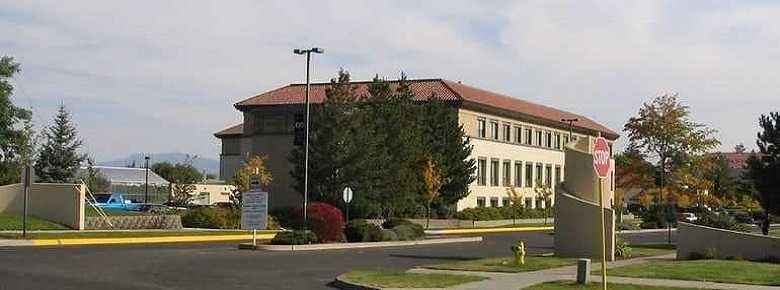
Eastern Oregon University offers an online program for a Bachelor’s in Health and Human Performance. Students can choose from four concentrations: Nature and Outdoor Recreation Programming, Community Health, Exercise Science, or Physical Education. The program offers part-time and full-time tracks. On average, students can complete their 180 required credit hours in 4 years of full-time study.
Eastern Oregon University is accredited by the Northwest Commission on Colleges and Universities.

Franklin University offers a Bachelor’s in Health Education and Promotion. The program aims to help students develop the research, education, and communication skills needed in a variety of health education careers. All classes can be completed online in sessions that are 6 to 12 weeks long. Students may transfer in up to 90 qualifying credits from outside institutions toward the program’s 120 required credits.
Franklin University is accredited by the Higher Learning Commission.

Indiana University offers a Bachelor of Science in Applied Health Science with a concentration in Community Health Education. Graduates of this program may pursue careers as wellness coordinators, health advocates, or non-profit workers. This program is housed 100% online. Students who attend full-time can typically complete the 120 required credit hours in 4 years.
Indiana University is accredited by the Higher Learning Commission.

National University offers a Bachelor of Science in Public Health. This program may be well suited for students who want to help improve public health in their broader communities. Classes can be completed online or in-person, and each one is 4 weeks long. The program accepts applications from incoming students year-round.
National University is accredited by the WASC Senior College and University Commission.
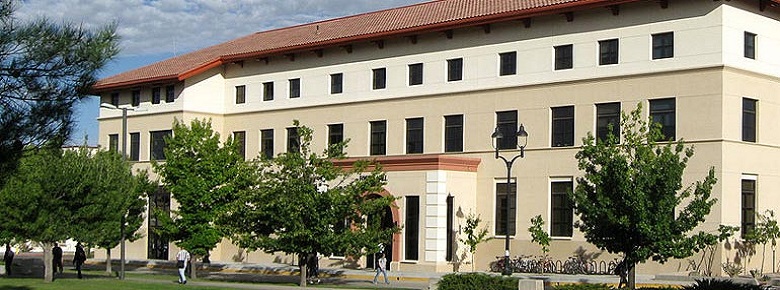
New Mexico State University offers a Bachelor of Public Health program that can typically be completed in 3 to 4 years. The curriculum covers core concepts like epidemiology, evidence-based policies, health promotion, behavioral science, and professional ethics. The program is housed primarily online. In addition to virtual courses, students are also required to complete 320 clinical hours in the field.
NMSU is accredited by the Higher Learning Commission.

Portland State University offers a Bachelor’s in Public Health with a concentration in Community Health. This concentration aims to teach students how to promote health in various public settings. Depending on students’ career goals, the program can be completed as a Bachelor of Arts or Science. All tracks allow online attendance and require the completion of 180 credits.
Portland State University is accredited by the Northwest Commission on Colleges and Universities.
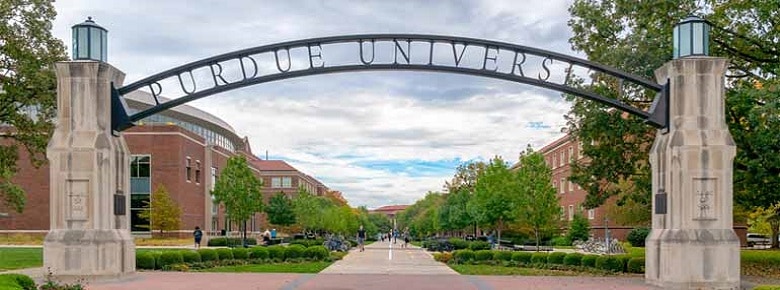
Purdue University offers a Bachelor of Science in Health Education and Promotion. The program’s 100% online format provides flexible learning options for busy students. Students typically need to devote 15 to 18 hours per week to their coursework during each 10 week term. Those attending full-time can usually complete the program in 4 years.
Purdue University is accredited by The Higher Learning Commission of the North Central Association of Colleges and Schools.
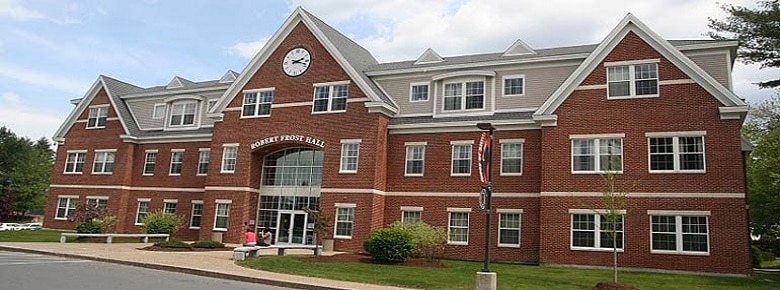
Southern New Hampshire University offers a Bachelor’s in Community Health Education. The program aims to teach students how to analyze the efficacy of programs, plan and execute preventative campaigns, and promote health in an ethical manner. To graduate, students must complete 120 credits, which can usually be done in 4 years. The program can be attended fully online.
Southern New Hampshire University is accredited by the New England Commission of Higher Education.
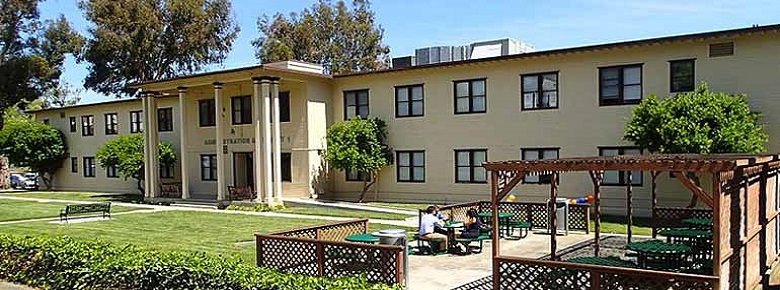
Touro University Worldwide offers a Bachelor’s in Health Science with a concentration in Health Education. The curriculum covers topics like human nutrition, team development, and environmental health. The program uses an entirely online learning format, and each class is 8 weeks long. On average, students can complete their studies in 3.5 years of full-time attendance.
Touro University Worldwide is accredited by the WASC Senior Colleges and University Commission.

The University of Alabama—Birmingham offers a Bachelor of Science in Community Health and Human Services. Students interested in working in public health may select the Community Health concentration. All classes are offered online. In addition to coursework, students can gain valuable experience by completing an internship in the public health field.
The University of Alabama at Birmingham is accredited by the Southern Association of Colleges and Schools Commission on Colleges.

The University of Arkansas—Little Rock offers a Bachelor’s in Health Education and Promotion. The program seeks to prepare students for work in community organizations, non-profits, and private health organizations. It requires 120 credit hours, all of which can be completed online. Students are also required to complete an 18 credit minor on top of their major requirements.
UA Little Rock is accredited by the Higher Learning Commission.

The University of Florida offers a Bachelor of Science in Health Education with a concentration in Community Health Promotion. Courses in this specialty focus equally on understanding and applying health theory in the public arena. All courses are offered in a flexible online format. On average, students can finish the program in 4 years of full-time attendance.
The University of Florida is accredited by the Southern Association of Colleges and Schools Commission on Colleges.
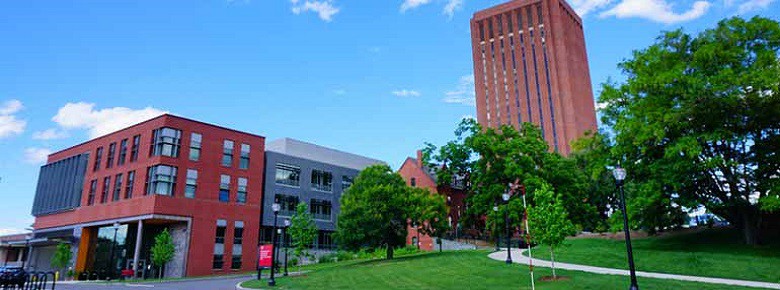
The University of Massachusetts offers a Bachelor’s in Health Studies. The curriculum covers topics like health disparities, health and addiction, mental health, nutrition, and environmental health. The program is housed within the University Without Walls division, ensuring that all classes are offered online to promote accessibility for all.
The University of Massachusetts is accredited by the New England Commission of Higher Education.

A Bachelor of Science in Community Health Education is offered by the University of New Mexico. Graduates of the program often pursue careers in community health, public policy, employee wellness, and healthcare education. The program uses an accelerated online model. Once students finish general and elective requirements, they only need to complete 57 credits in the major.
The University of New Mexico is accredited by the Higher Learning Commission.

The University of North Carolina Greensboro offers a Bachelor of Science in Public Health Education. The program places special emphasis on recognizing and addressing health disparities for marginalized populations. Students can attend their classes fully online. To graduate, students must complete 120 credits and maintain a 2.5 cumulative GPA.
The University of North Carolina at Greensboro is accredited by the Southern Association of Colleges and Schools Commission on Colleges.
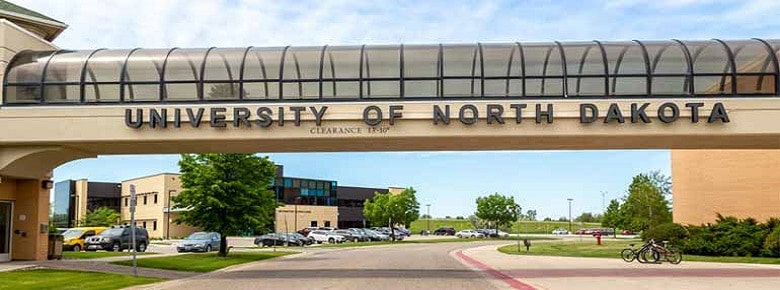
The University of North Dakota offers a Bachelor’s in Public Health Education. Upon graduation, students may pursue careers in clinics, schools, government agencies, or hospitals. Students can choose to attend classes online or on-campus. In addition to traditional coursework, students are also required to gain hands-on learning experience by completing a 12 credit internship in the field.
UND is accredited by the Higher Learning Commission.

Walden University offers a Bachelor of Science in Health Studies. The program offers concentrations in Healthcare Management, Health Promotion and Wellness, and Health Psychology and Behavior. The curriculum spans 181 quarter credit hours in general education, core, elective, and capstone courses. All concentrations are housed entirely online.
Walden is accredited by the Higher Learning Commission.
Getting Your Bachelor in Community Health Education Degree Online

If you desire to make a positive impact on the health of individuals and communities, then you might consider earning a BS in Community Health Education online.
Health education professionals are in high demand, and a bachelors in health education can help you qualify for a variety of roles, depending on your interests. A growing number of accredited universities are now offering online degree programs. Online learning can enable you to complete your coursework and earn your degree according to your own schedule.
If you’re ready to develop your expertise in this growing field, you can start exploring accredited schools today to find the community health education program that’s right for you.

